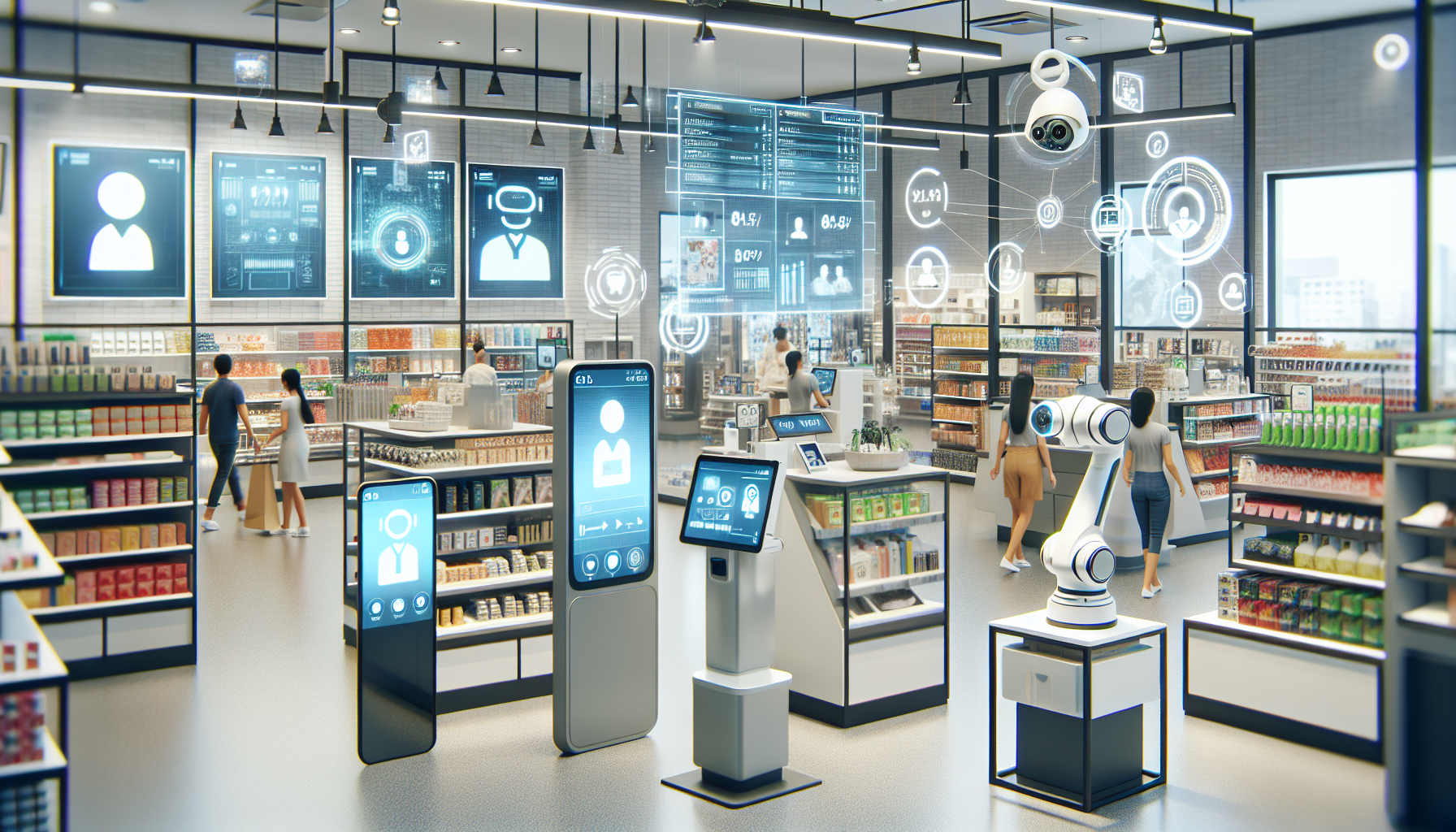The Role of AI in Smart Stores
AI technology is transforming traditional retail into smart stores, enhancing operational efficiency and consumer experience. Retailers are adopting AI-driven solutions for inventory management, customer service, personalized shopping experiences, and data analytics. This phenomenon is reshaping the way businesses operate and engage with their customers.
Inventory Management
AI-powered inventory management systems utilize machine learning algorithms to predict stock levels, manage supply chains, and reduce costs. These systems analyze real-time sales data, seasonal trends, and consumer behavior to forecast demand accurately.
Demand Forecasting
Accurate demand forecasting ensures that retailers minimize excess stock and avoid stockouts. For example, Walmart employs AI algorithms to estimate future product demand based on historical sales data and regional consumer preferences. This predictive analysis allows for optimized stock levels, ultimately reducing storage costs and increasing turnover rates.
Automated Replenishment
Smart stores are leveraging AI to automate the replenishment of products. Systems like RFID and IoT sensors track inventory levels and trigger automatic reordering when stocks fall below a preset threshold. This reduces the risk of human error and ensures that stores are always stocked with the right products.
Personalized Shopping Experiences
Personalization is a key trend in retail, and AI is at the forefront of this movement. By analyzing consumer behavior and preferences, AI enables retailers to create tailored shopping experiences.
Recommendation Engines
E-commerce giants like Amazon employ sophisticated AI algorithms to analyze customer behaviors and recommend products. These recommendation engines enhance user engagement and lead to increased sales. For instance, if a customer frequently purchases fitness gear, the system will suggest related items, enhancing the likelihood of additional purchases.
Chatbots and Virtual Assistants
Retailers are increasingly using AI-powered chatbots to improve customer service. These virtual assistants can handle inquiries, assist customers in product selection, and provide personalized suggestions. Companies like Sephora and H&M have successfully integrated chatbots into their platforms, facilitating a seamless shopping experience and driving conversions.
Enhanced Customer Insights
AI analytics tools provide retailers with deep insights into customer behavior, enabling smarter business decisions. By evaluating customer data and trends, retailers can refine strategies and enhance customer satisfaction.
Customer Segmentation
AI technologies enable advanced customer segmentation by analyzing demographic data, purchasing behavior, and online interactions. Retailers can create targeted marketing campaigns tailored to specific consumer groups. For instance, Target uses AI to identify and target new parents by analyzing purchasing patterns associated with baby products.
Sentiment Analysis
Retailers are also using sentiment analysis to gauge public perception of their brand and products. AI tools scan social media, reviews, and feedback to assess customer satisfaction. Brands can then implement strategies to enhance their experience based on the feedback received, making their offerings more responsive to consumer needs.
Operational Efficiency
AI enhances operational efficiency in various retail sectors by automating and optimizing numerous processes.
Smart Checkout Systems
Self-checkout systems powered by AI allow customers to scan and pay for items at their convenience. Technologies like computer vision and facial recognition simplify the transaction process, reducing wait times and enhancing customer satisfaction. Stores like Amazon Go have implemented cashier-less experiences, where AI tracks purchases without the need for human interaction.
Workforce Management
AI tools can streamline workforce scheduling by analyzing historical data and forecasts to optimize staffing levels. Retailers like McDonald’s leverage AI to predict busy hours, helping them allocate staff effectively and reduce labor costs while improving customer service.
Supply Chain Optimization
Efficient supply chain management is vital for successful retail operations. AI applications help retailers streamline logistics, reduce costs, and improve delivery times.
Predictive Logistics
AI facilitates predictive logistics by analyzing vast amounts of data to anticipate potential disruptions in the supply chain. By identifying bottlenecks and predicting delays, retailers can proactively adjust their supply strategies, ensuring timely product availability.
Supplier Management
AI tools help streamline supplier management. By evaluating supplier performance data, retailers can optimize supplier selection and negotiation strategies, leading to improved relationships and better pricing.
Enhancing In-Store Experience
The in-store experience is essential for customer retention, and AI plays a crucial role in elevating it.
Smart Mirrors and Augmented Reality
AI-driven technologies like smart mirrors and augmented reality (AR) provide interactive shopping experiences. Retailers in the fashion industry use AR to allow customers to virtually try on clothes, helping them make informed purchasing decisions.
In-Store Analytics
AI can analyze foot traffic and customer interactions within the store. Heat maps generated by AI analyze customer flow, identifying popular areas and potential bottlenecks. This data helps retailers make layout adjustments, improving the overall shopping experience.
Challenges and Ethical Considerations
As retailers integrate AI into their operations, they face challenges and ethical considerations.
Data Privacy
With the rise of AI in retail, customer data collection has become more extensive. Retailers must navigate data privacy regulations like GDPR, ensuring compliance while still reaping the benefits of data-driven insights.
Job Displacement
As AI automates various tasks, there’s concern about job displacement. Retailers must balance efficiency with employee welfare, providing training and opportunities for staff to adapt to new roles.
Future Trends in AI-Driven Retail
The future of retail is poised for exciting trends driven by AI advancements.
Hyper-Personalization
In the coming years, expect hyper-personalized shopping experiences powered by AI. Retailers will create even more refined customer profiles, leading to dynamic pricing models and tailored marketing strategies.
AI-Driven Sustainability
As sustainability becomes a priority, AI will play a pivotal role in environmental initiatives. From optimizing energy consumption in stores to improving supply chain transparency, AI can help retailers align with eco-friendly practices.
Conclusion: Embracing AI Innovations
The shift towards intelligent retail solutions reflects the growing importance of AI in the retail landscape. From enhancing customer experiences to optimizing internal processes, AI equips retailers with the tools needed for success in an increasingly competitive market. Retailers ready to embrace these innovations will find themselves leading the charge into the future of retail.


